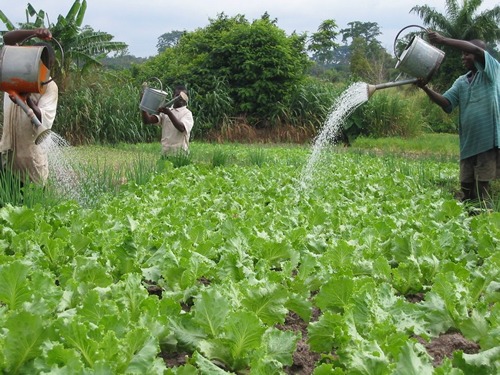Ghana’s agriculture sector is set for a major financial injection in 2025, with the government and development partners committing a combined GHS 2.9 billion to key programmes under the Ministry of Food and Agriculture.
According to the 2025–2028 Medium Term Expenditure Framework, the funding will target the flagship Feed Ghana programme, agricultural mechanisation, irrigation expansion, livestock development, and post-harvest infrastructure — all aimed at boosting food security and cutting reliance on imports.
Government resources, including Internally Generated Funds (IGF), will contribute GHS 1.61 billion (55.3%), while development partners will provide GHS 1.3 billion (44.7%).
Of the total allocation, GHS 226.6 million is earmarked for compensation of employees, GHS 1.13 billion for goods and services, and GHS 1.55 billion for capital expenditure.
The investment aligns with Ghana’s Agriculture for Economic Transformation Agenda (AETA), which seeks to modernise farming, raise productivity, and create sustainable jobs across the value chain.
Palm Oil Push to Slash $2bn Import Bill
The framework also outlines plans to reduce Ghana’s $2 billion annual palm oil import bill through a bold policy to ramp up domestic production and diversify into high-value tree crops.
The National Palm Oil Industry Policy will distribute 1.5 million oil palm seedlings to farmers, promote large-scale out-grower plantation schemes, and offer incentives to expand local processing capacity.
Dubbed the “RedGold” oil palm programme, the initiative is expected to attract significant private sector investment, create thousands of rural jobs, and advance Ghana’s import substitution and agro-industrial transformation drive.



